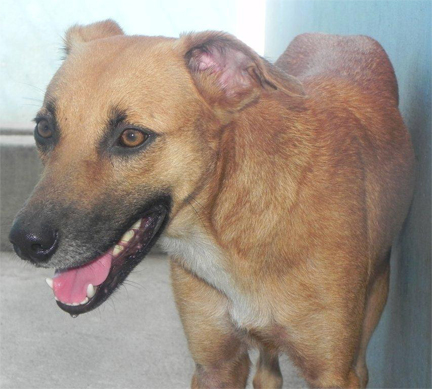Continued from last week
Undescended testicles
Testicles usually descend before birth in most dogs. In some, the testicles may descend as late as five to six months of age. If a testicle can be felt at one time but not at another, there is no need for concern. Testicles can retract back up into the groin when a puppy is cold, excited or actively playing. Both testicles should be fully descended before six months of age. Consult your veterinarian if the testicles have not come down by that time.
The testicles should be of similar size and feel rather firm. Since much of the testicles size is due to the sperm-producing tissue, soft or small testicles in the sexually mature dog are likely to be deficient in sperm.
 Monorchid dogs, those with only one testicle in the scrotum, may be fertile. However, they should not be used as stud dogs, because the condition is inherited, and you don’t want this deficiency to be passed on to future generations. I strongly advise that such dogs be neutered (castrated). Cryptorchid dogs, those with no testicles in the scrotum, are sterile.
Monorchid dogs, those with only one testicle in the scrotum, may be fertile. However, they should not be used as stud dogs, because the condition is inherited, and you don’t want this deficiency to be passed on to future generations. I strongly advise that such dogs be neutered (castrated). Cryptorchid dogs, those with no testicles in the scrotum, are sterile.
Treatment
Hormone injections (luteinizing hormone or testosterone) have been used to stimulate testicular descent in puppies. Results are questionable. I don’t recommend this approach.
If the testicles do not seem well developed at one year of age, ask your veterinarian to do a semen analysis.
Artificial insemination (AI)
Lots of pet owners and breeders have, over the years, approached me on the matter of artificially inseminating dogs. For this reason, I’ll now discuss this topic under the heading of infertility, although this is not the real place to deal with this issue.

Artificial insemination (AI) is a technique whereby semen is collected manually from the stud male and introduced (inseminated) into the reproductive tract of the female, so that fertilization can occur in the absence of natural mating. When absolutely properly performed, it could be as successful as actual mating. Unfortunately, AI is often used as a last resort, when it is too late in the heat cycle for the bitch to conceive. AI, it seems, has its widest application when natural mating is contraindicated or impossible. Usually, this is for psychological reasons, anatomical reasons, or fear of transmitting disease. All of these reasons are exactly those which should preclude the mating of the dogs in the first place.
Obviously, for genuine breeders it might be much cheaper to import semen and then have the veterinarian do the rest. I and at least one other vet, here in Guyana, to my knowledge, have used the AI technique to get top quality offspring for clients (breeders).
I don’t perform this service any more, because it takes a lot of organizing and personal monitoring (ensuring the semen is well cared for – from shipment to arrival in the Clinic; the correct moment to inseminate the bitch – when she is ready, etc, I just don’t have the time. Besides, the success rate is not 100 per cent, not in practical terms, not historically.
Techniques to freeze and preserve canine semen over long periods have met with some success during the past several years, and it is entirely possible that these techniques will alter the future of international dog breeding.
In the United States, the American Kennel Club has definite regulations concerning the registration of dogs produced by AI. We don’t. And the legislation has not touched this complicated topic. In fact, several countries (such as Norway, Sweden and the United Kingdom) refer to ethical and animal welfare concerns and discourage and even forbid the use of surgical procedures associated with intra-uterine insemination.
Please implement disease preventative measures (vaccinations, routine dewormings, monthly anti-heartworm medication, etc) and adopt-a-pet from the GSPCA’s Animal Clinic and Shelter at Robb Street and Orange Walk, if you have the wherewithal to care well for the animals. Do not stray your unwanted pets, take them to the GSPCA’s Clinic and Shelter instead. If you do not wish your pet to have puppies or kittens, you may exploit the GSPCA’s free spay and neutering programme. If you see anyone being cruel to an animal, or if you need any technical information, please get in touch with the Clinic and Shelter by calling 226-4237.





